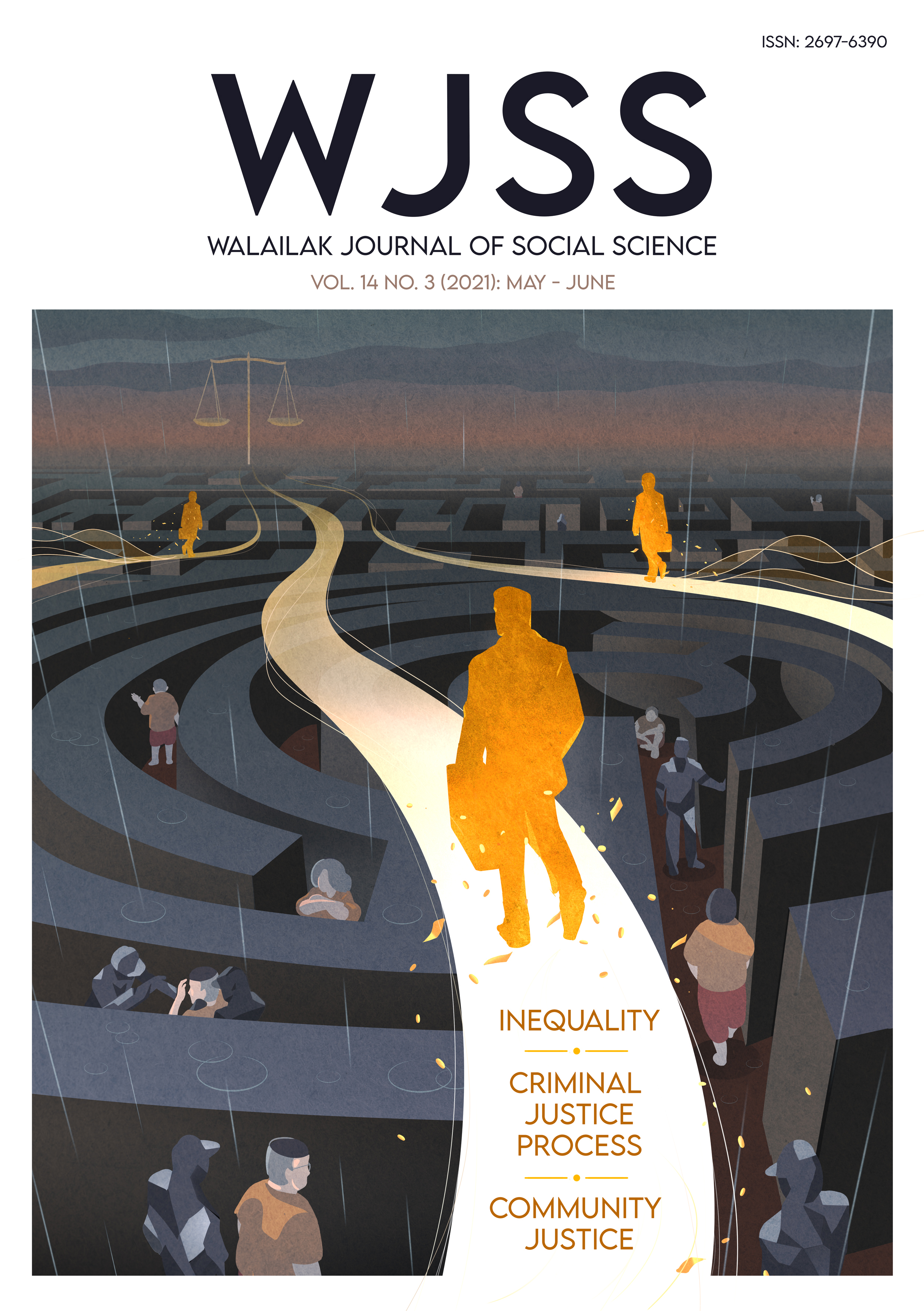Does the Popular Trade-off Exist in the Education Sector in Thailand: An Analysis of Development in Education Sector through Education Possibility Frontier
Main Article Content
Abstract
In this paper we will look at a trade-off between quantity provision and quality improvement in the ‘education sector’ , specifically in the Thai’s Education System. The education sector plays a very significant role in the transformation of any economy by securing economic and social progress and improving income distribution. It’s a key to the development of all society and serves as an engine for economic development, centered on its quantity and quality. In the economic growth literature, human capital theory highlights the importance of education and training as the basic to participation in the Global Economy. In this Paper, we will look at the trade-off by using the four pillar argument; Economic, Social, Cultural and Political, so as to keep the analysis realistic and also to construct the proposition whether the trade-off argument hold or not in the case of Thai’s Education system.
Article Details
Copyright: CC BY-NC-ND 4.0
References
Au, W. (2007). High-stakes testing and curricular control: A qualitative meta synthesis. Educational Researcher, 36(5), 258-267.
Bounlouane,D., Yujiro, H., & Yoshihisa, G. (2005). Education and natural resources in economic development: Thailand compared with Japan and Korea. Journal of Asian Economics, 16(2), 179-204.
Bunnag, S. (1997). Poor academic performance of students blamed on rote system (p. 2). Bangkok, Thailand: Bangkok Post.
Bunnag, S. (2000). All schools set to scrap rote learning (p. 5). Bangkok, Thailand: Bangkok Post.
Chanawongse, K. (2010). The next round of education reform by the Thai government and the four pillars of education. Journal of Administration and Development, Mahasarakham University, 1(2), 7-14.
Fry, G. W. (2002). Synthesis report: From crisis to opportunity: The challenges of educational reform in Thailand. Bangkok, Thailand: National Education Commission.
Hallinger, P., & Lee, M. (2000). Education in Thailand after the crisis: A balancing act between globalization and national self-contemplation. International Journal of Educational Development, 20(3), 223-245.
Hallinger, P., & Moosung, L. (2011). A decade of education reform in Thailand: broken promise or impossible dream? Cambridge Journal of Education, 41(2), 139-158.
Kiat, C. H. (2012). Quality of education in Thailand: A conflict between policy and culture. Education and International Development: Concepts, Theories and Issues, Eramus Special Course, University of Oulu.
Lathapipat, D.; & Sondergaard, L. M. (2015). Thailand-Wanted: A quality education for all. Washington, DC: World Bank Group.
Ministry of Education Report, Malaysia. (2012). Malaysia Education Blueprint, 2013-2025. Retrieved from http://www.moe.gov.my/userfiles/file/PPP/Preliminary-Blueprint-Eng.pdf
OECD. (2011). Chapter-D: The learning environment and organization of schools. Education at a Glance 2011: OECD Indicators.
ONEC. (1999). Thailand’s education reform: The national education act 1999. Hope for a Better Thailand: Office of the National Education Commission.
Pennington, M. (1999). Asia takes a crash course in education reform. Retrieved from http://www.unesco.org/courier/1999_08/uk/apprend/txt1.htm
Pongwat, A., & Rupavijetra, P. (2014). The problematique of quality education in Thailand. Chiang Mai, Thailand: Chiang Mai University.
Prapphal, K. (2008). Issues and trends in language testing and assessment in Thailand. Language Testing, 25(1), 127-143.
Roberts, V. (2009). Balancing quality and quantity in tertiary education: The Caribbean Challenge. In Proceedings of the 6th Annual CANQATE Conference in Barbados.
Sandrine, M. (2015). Education in Thailand: When economic growth is no longer enough. London Review of Education, 13(3), 79-91.
Tableman, L. D. (2007). The impact of structural adjustment policies on the education system of developing countries: A comparative study between Thailand and Malaysia after the Asian Financial Crisis (Master’s thesis). University of Oregon.
Tangkitvanich, S., & Sasiwuttiwat, S. (2012). Revamping the Thai education system: Quality for all. Bangkok, Thailand: Thailand Development Research Institute (TDRI).
Thailand’s Unesco Report. (2002). Retrieved from http://www.ibe.unesco.org/Inter national/ICE/natrap/Thailand.pdf
The Education System in Thailand, Ministry of Education. (2007). Retrieved from http://www.moe.go.th
The Nation. (1999). Retrieved from http://www.edthai.com/reform/nov28a.htm
The Nation. (2010). Bold steps needed in education reform. Retrieved from http://www.nationmultimedia.com/home/2010/03/31/opinion/Bold-stepsneeded-in education-reform-30125930.html
The Nation. (2012). O-NET set for redesign as row rages over results. Bangkok, Thailand.
The Nation. (2012). Parents, teachers give 0-NET low marks. Bangkok, Thailand.
The Nation. (2013). NIETS needs to focus on quality, not quantity. Bangkok, Thailand.
The Nation. (2013). O-NET exams being ignored by students. Bangkok, Thailand.
Towards a Learning Society in Thailand. (2007). Ministry of Education (MoE) report. Retrieved from http://www.bic.moe.go.th/fileadmin/BIC_Document/book/intro-ed08.pdf
UNESCO (2005). Education for all: The quality imperative. Retrieved from http://unesdoc.unesco.org/images/0013/001373/137333e.pdf
Vanichseni, S. (2012). Thailand K-12 education system progress and failure. Bangkok, Thailand.
World Bank Group. (2006-2007). Thailand social monitor: Towards a competitive higher education system in a global economy. World Bank Group.


